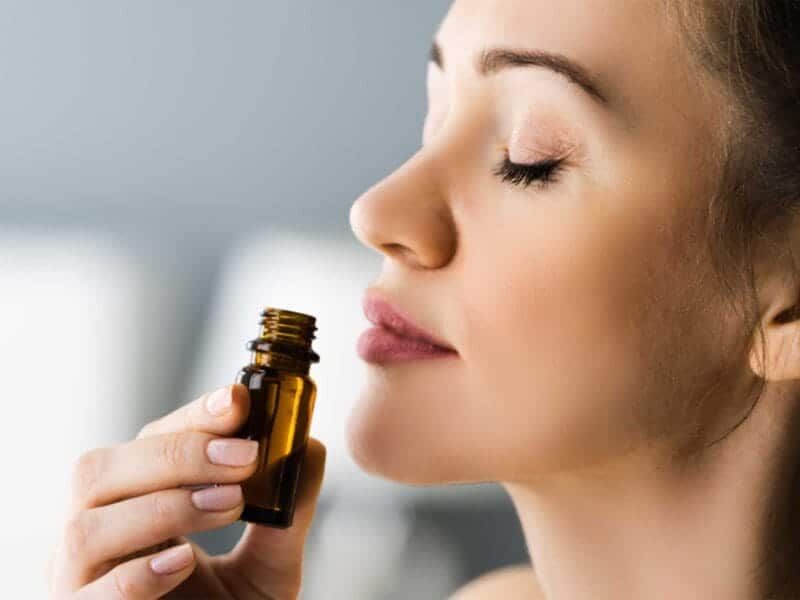“I’ve been on a journey to untangle my association of fragrance with cleanliness,” Caroline Mullen writes in a recent Wirecutter article titled “Did You Know That ‘Unscented’ Isn’t the Same As ‘Fragrance-Free’?”
Part of her motivation for doing this is that she’s become “more sensitive” to fragrances, with certain perfumes causing hives to appear on her wrists and ultra-fragrant laundry detergents triggering bouts of sneezing and itching.
Mullen says she intuitively began replacing her fragranced products with unscented or fragrance-free alternatives – “but it turns out that those two things aren’t equivalent.”

What “unscented” really means
“Unscented” does not mean that a product is free of all natural or synthetic fragrance chemicals, Mullen writes. “Unscented generally means that the product may contain chemicals that neutralize or mask the odors of other ingredients,” states the EPA’s Safer Choice Fragrance-Free fact sheet.
“For example, an antiperspirant deodorant can be labeled as ‘unscented’ and marketed toward sensitive skin, but the ingredient list can still include ‘fragrance,’ ‘parfum,’ or another synonym,” Mullen says. “If the fragrance was added to counteract the scent of the raw materials, the antiperspirant can be labeled as ‘unscented.’ However, for people who are sensitive to fragrance, this antiperspirant may still cause a reaction. The type of fragrance isn’t always listed on a product’s label, so even people who are sensitive to only specific fragrances can’t be sure that the product won’t irritate them.”
Instead, a clinical professor of dermatology interviewed by Mullen recommends that people prone to allergies and sensitivities stick to fragrance-free products wherever possible.
What “fragrance-free” really means
“Fragrance-free means that fragrance materials or masking scents are not used in the product” at all, says the EPA.
These products might have language on their packaging like “no perfumes,” “perfume-free,” or “no fragrance.”
Mullen writes, “You can also identify fragrance-free products by looking for certification badges, such as the EPA’s Safer Choice Fragrance-Free label or the National Eczema Association’s Seal of Acceptance. Those two certifications in particular have strict ingredient guidelines, and products that meet their standards cannot contain any fragrance materials.”
What about “natural” fragrances?
While natural fragrances aren’t produced in a laboratory from chemical compounds, they can still trigger allergic reactions. In fact, Mullen writes, “studies published in the Journal of Cosmetic Dermatology and the American Contact Dermatitis Society’s journal list 175 and 150 potentially irritating fragrance ingredients, respectively,” many of them natural or essential oils.
“If you’re looking for personal-care and cleaning products that won’t exacerbate allergies or respiratory or skin conditions, natural fragrances aren’t necessarily the way to go — you’re probably better off looking for completely fragrance-free products,” she says.
How to tell if you’re sensitive or allergic to a fragrance
“None of the above terms (“unscented,” “fragrance-free,” “natural”) are federally regulated, so it’s up to shoppers to determine which products won’t cause a reaction or exacerbate a condition,” Mullen writes. “And that mostly involves trial and error.”
Fragrance sensitivities and allergies can manifest in respiratory symptoms, particularly if you already have asthma. They can also lead to itchiness, rashes, an exacerbation of eczema symptoms, headaches, sneezing, a runny nose, and nausea.

“In general, leave-on products are more likely to cause skin reactions than wash-off products,” Mullen writes. A moisturizer, for example, is more likely to trigger an allergy than a shampoo because the moisturizer sits on your skin for hours or even days, while the shampoo washes off within seconds.
The same can be said of fragrances in home-cleaning products, which, in most instances, you wash off your skin soon after using. Gloves can help protect your hands when using these products. But at the very least, you should wash your hands after cleaning to prevent irritation.
If you’re prone to irritation from fragrances, Mullen suggests switching to a fragrance-free laundry detergent, since the scents in detergents are typically engineered to remain on clothing for long periods of time.
For personal-care products, test a scented product on a discreet part of your body just to be sure it doesn’t cause an adverse reaction.
If you think you might be allergic to a fragrance, discontinue use of the product and see a board-certified dermatologist.



 Spray Sunscreens Are Just as Effective as Lotions – as Long as They’re Applied Correctly
Spray Sunscreens Are Just as Effective as Lotions – as Long as They’re Applied Correctly